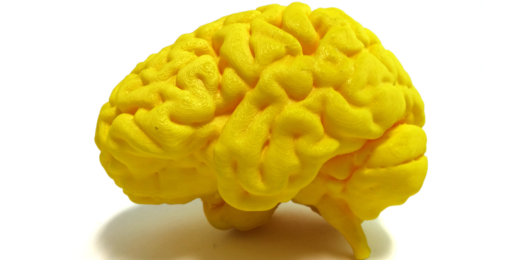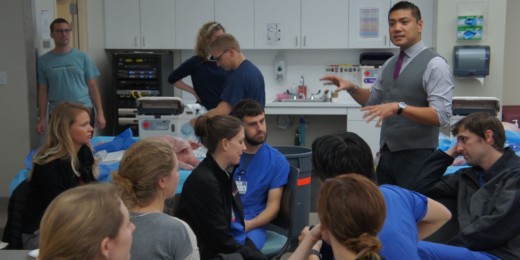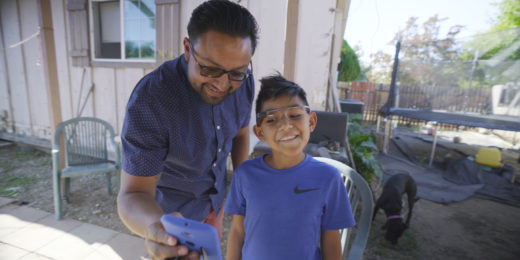In most babies and kids, the sound of their mother's voice gets special treatment in the brain. But in autism, this distinctive brain response is lessened.
Category: Psychiatry & Mental Health
Master your mind: A challenge from WELL for Life
This challenge asks participants to recognize when negative thoughts are occurring and try to diffuse them when they turn worrisome or distracting.
For patients on antidepressants, a common opioid is less effective
Patients who are taking the most common type of antidepressant may feel more pain when taking certain opioids, Stanford researchers have found.
Hunting for the origins of depression
Stanford psychologist Ian Gotlib is examining how depression develops and working to identify potential opportunities for intervention.
Positive mindset helps with an allergy therapy’s side effects, says Stanford study
A small change in how patients learn to think about side effects of a food allergy treatment greatly reduces their anxiety, Stanford researchers found.
“Scientific serendipity” identifies link between type of RNA and autism
Long non-coding RNAs are important but poorly understood regulatory elements. Now Stanford scientists have uncovered they play a role in autism.
The brain-circuitry clash that keeps you from diving into that plate of ribs when you’re dining with royalty
A study in Nature details a discovery with potential clinical significance for treating eating disorders such as anorexia. To make that discovery, Stanford researchers had to develop a "first-time-ever" way of teasing apart two separate but closely intertwined sets of identical-appearing neurons in the brain.
WELL challenges you to be mindful during the holidays
Stanford's WELL for Life initiative is challenging you to practice the art of mindfulness for one week to promote self-care.
The positives whisper: Thoughts on gratitude from an emergency medicine physician
Emergency medicine physician Al’ai Alvarez discusses how he integrates gratitude into his daily life and its many widespread benefits.
Medical students turn to peer-support groups for assistance: A Q&A
A Stanford psychiatry resident discusses the peer-to-peer support programs available to Stanford’s medical students, which she helped create.
Helping kids with autism better understand facial expressions, “which is kind of fantastic”
A look at a new type of behavioral therapy designed to help children with autism understand emotions and interact better with others.
Improving PTSD care through genetics
Although sparked by trauma, PTSD has a genetic component as well, which can influence what therapy is most successful and provide other insights.
Could I really be the only one struggling? A graduate student opens up about mental health
Stanford graduate student Francis Aguisanda shares his struggles with mental illness in this piece, which he wrote to let others know they are not alone.
National anti-smoking campaign helps smokers with mental health conditions try to quit
An anti-smoking ad campaign featuring a woman with depression helps smokers with mental health conditions attempt to quit.
Home videos as a tool for autism diagnosis
Stanford biomedical data scientist Dennis Wall and his team are using brief home videos of kids to help make rapid diagnostic decisions about autism.
Is zinc the link to how we think? Some evidence, and a word of warning
Studies have associated low zinc levels with autism spectrum disorder. But why this should be the case has been unclear. Now, scientists may have an explanation for the link.















